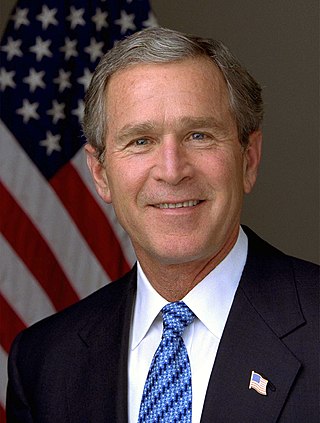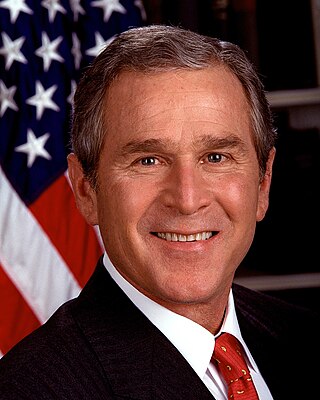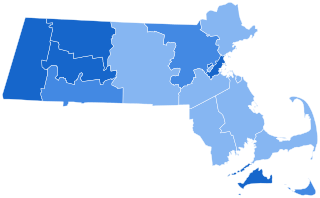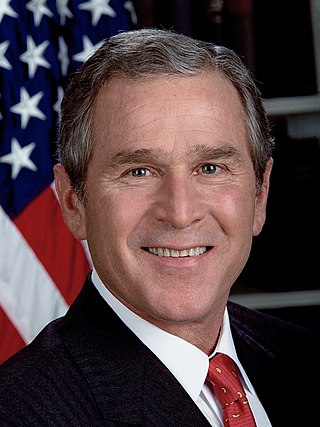
Each of the 50 U.S. states, the District of Columbia, and territories of the United States holds either primary elections or caucuses to help nominate individual candidates for president of the United States. This process is designed to choose the candidates that will represent their political parties in the general election.

The New Hampshire presidential primary is the first in a series of nationwide party primary elections and the second party contest, the first being the Iowa caucuses, held in the United States every four years as part of the process of choosing the delegates to the Democratic and Republican national conventions which choose the party nominees for the presidential elections to be held in November. Although only a few delegates are chosen in the New Hampshire primary, its real importance comes from the massive media coverage it receives, along with the first caucus in Iowa.

Super Tuesday is the United States presidential primary election day in February or March when the greatest number of U.S. states hold primary elections and caucuses. Approximately one-third of all delegates to the presidential nominating conventions can be won on Super Tuesday, more than on any other day. The results on Super Tuesday are therefore a strong indicator of the likely eventual presidential nominee of each political party.

From January 19 to June 8, 2004, voters of the Republican Party chose its nominee for president in the 2004 United States presidential election. Incumbent President George W. Bush was again selected as the nominee through a series of primary elections and caucuses culminating in the 2004 Republican National Convention held from August 30 to September 2, 2004, in New York City.
The results of the 2008 Democratic Party presidential primaries are the detailed outcomes of a series of contests by which members of the United States Democratic Party chose their candidate for the 2008 U.S. presidential election. The contests are held in each of the fifty U.S. states, as well as the District of Columbia, Puerto Rico, American Samoa, Guam, the U.S. Virgin Islands, and Democrats Abroad. The Northern Mariana Islands was the lone U.S. state or territory which did not have a primary or caucus election in 2008. The outcomes include totals of delegates selected as well as popular votes.

This is the electoral history of Barack Obama. Obama served as the 44th president of the United States (2009–2017) and as a United States senator from Illinois (2005–2008).

From January 3 to June 5, 2012, voters of the Democratic Party chose its nominee for president in the 2012 United States presidential election. President Barack Obama won the Democratic Party nomination by securing more than the required 2,383 delegates on April 3, 2012, after a series of primary elections and caucuses. He was formally nominated by the 2012 Democratic National Convention on September 5, 2012, in Charlotte, North Carolina.

The 2000 Iowa Republican presidential caucuses took place on January 24, 2000. The Iowa Republican caucuses are an unofficial primary, with the delegates to the state convention selected proportionally via a straw poll. The Iowa caucuses marked the traditional formal start of the delegate selection process for the 2000 United States presidential election.

The election of the president and the vice president of the United States is an indirect election in which citizens of the United States who are registered to vote in one of the fifty U.S. states or in Washington, D.C., cast ballots not directly for those offices, but instead for members of the Electoral College. These electors then cast direct votes, known as electoral votes, for president, and for vice president. The candidate who receives an absolute majority of electoral votes is then elected to that office. If no candidate receives an absolute majority of the votes for president, the House of Representatives elects the president; likewise if no one receives an absolute majority of the votes for vice president, then the Senate elects the vice president.

The 2012 United States presidential election in Massachusetts took place on November 6, 2012, as part of the 2012 United States presidential election in which all 50 states plus the District of Columbia participated. Massachusetts voters chose 11 electors to represent them in the Electoral College via a popular vote pitting incumbent Democratic President Barack Obama and his running mate, Vice President Joe Biden, against Republican challenger and former Massachusetts Governor Mitt Romney and his running mate, Congressman Paul Ryan.

Presidential primaries and caucuses of the Republican Party took place within all 50 U.S. states, the District of Columbia, and five U.S. territories between February 1 and June 7, 2016. These elections selected the 2,472 delegates that were sent to the Republican National Convention. Businessman and reality television personality Donald Trump won the Republican nomination for president of the United States.

This article contains the results of the 2016 Republican presidential primaries and caucuses, the processes by which the Republican Party selected delegates to attend the 2016 Republican National Convention from July 18–21. The series of primaries, caucuses, and state conventions culminated in the national convention, where the delegates cast their votes to formally select a candidate. A simple majority (1,237) of the total delegate votes (2,472) was required to become the party's nominee and was achieved by the nominee, businessman Donald Trump of New York.

Although American Samoa did not participate in the 2020 presidential election because it is a U.S. territory and not a state, it still participated in the U.S. presidential primaries and caucuses. Former mayor Michael Bloomberg won the Democratic caucus, held on March 3. The Republican caucus, in the form of a territorial convention held on March 18, endorsed incumbent President Donald Trump.

Below is a detailed tally of the results of the 2020 Republican Party presidential primary elections in the United States. In most U.S. states outside New Hampshire, votes for write-in candidates remain untallied.

The 2000 Illinois Republican presidential primary was held on March 21 in the U.S. state of Illinois as one of the Republican Party's statewide nomination contests ahead of the 2000 presidential election. 74 delegates to the 2000 Republican National Convention were allocated to the presidential candidates.

The 2000 Texas Republican presidential primary was held on March 14, 2000, as part of the 2000 presidential primaries for the 2000 presidential election. 124 delegates to the 2000 Republican National Convention were allocated to the presidential candidates, the contest was held alongside primaries in Florida, Louisiana, Mississippi, Oklahoma and Tennessee.

The 2000 American Samoa Democratic presidential caucuses were held on March 7, 2000, as part of the 2000 Democratic Party primaries for the 2000 presidential election. 3 delegates to the 2000 Democratic National Convention were allocated to the presidential candidates, the contest was held on Super Tuesday alongside primaries and caucuses in 15 other states.

Although American Samoa will not participate in the 2000 presidential election because it is a U.S. territory and not a state, it participated in the U.S. presidential primaries and caucuses for both the Democratic and Republican parties.
















